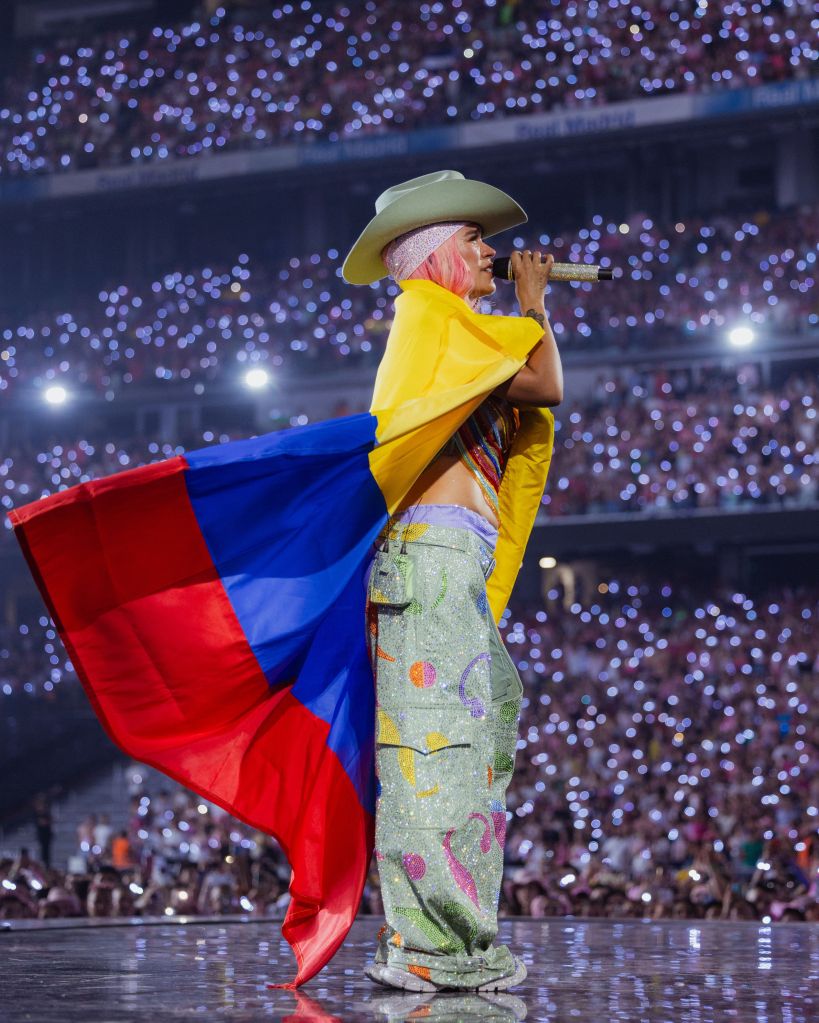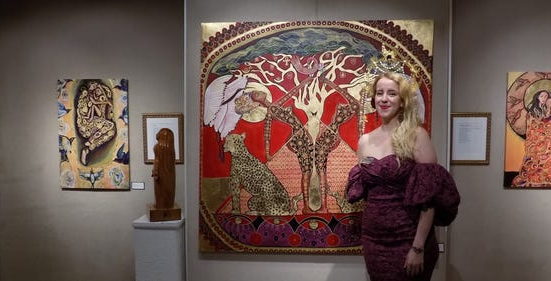Born in Miami, and raised between the Magic City and Spain, Hans Schafer’s life soundtrack blends everything from Sublime’s sun-soaked rock to the romantic ballads of José José. Immersed in the business of music from an early age — his stepfather is Jesús López, chairman and CEO of Universal Music Latin America and Iberian Peninsula, and his mother was a label manager at BMG Latin — Schafer developed a global outlook on the industry overall. That perspective would become his edge, helping him rise as a key architect in Latin music’s expansion across international markets.
Now senior vice president of global touring at Live Nation, Schafer has spent the past seven years shaping some of the most groundbreaking moments in Latin music history. He helped orchestrate Los Bukis’ $50 million-grossing reunion tour and their historic all-Spanish-language residency on the Las Vegas Strip. He played a pivotal role in launching the first international stadium tours for Karol G and Bad Bunny. Most recently, the latter’s “Debí Tirar Más Fotos World Tour” set global records, selling more tickets than any Latin artist ever in Italy, France, Poland, Portugal, Sweden and the United Kingdom.
“It’s just a matter of time before we start seeing more and more Latin acts in larger venues across the pond,” Schafer tells Variety. “The demand has been steadily growing, and as Bad Bunny has taught us, the great thing about globalization is once you do break through in new markets, the opportunity to connect and really cater to each new region individually is priceless. And that is true not only for Latin artists, but any artist.”
Live Nation reported that fan attendance at its shows in Latin America was up by more than 25% in the first quarter of 2025, citing that growing demand to be “supported by the global rise of non-English language artists,” who the company says now represent twice as many of its top 50 tours compared to 2019.

Henry Hwu
Schafer also spent time as director of Latin talent at AEG Live, overseeing the company’s Latin business and national booking strategy under the direction of Rebeca Léon (now founder-CEO of Lionfish Entertainment, an artist management and production company), as well as the branding and sponsorships division of Universal Music.
“It was [Léon] who told me I had a career in live and touring,” he says. “From there, I moved on to Live Nation, when there was a designated division for Latin artists. I remember when Los Bukis booked the first Latin stadium tour in the U.S. [in 2021], and the question was always, ‘Who else can do it?’ and that was a moment when the floodgates had opened, and it’s become much easier for somebody else to come in and accomplish that since then.”
Below, Variety talked with Schafer about ongoing tours, opportunities for growth and big wins for such acclaimed acts as Feid, Shakira, Rauw Alejandro, Karol G, Kali Uchis and Tito Double P, among many others, below.
What is the biggest misconception about international tours for Spanish-language artists?
When you start to look at the industry and the business, the Latin music business really becomes about the demographic, and not just the consumption of Latin music but also the consumption of other music. Within the company of Live Nation, we’re not looking at that Latin as just a silo of fans who consume that music. It is a much broader conversation. How do you target those audiences?
At the beginning, these tours were more seen as investments. Giving your fans an opportunity to see you live holds a lot of delayed value for an artist’s touring career. I think back to the audiences that got to see Bad Bunny play a 500-capacity room at a small club; they wear that accomplishment like a badge of honor — and that level of development can only happen with time. That step-by-step will give you longevity and a better chance for a bigger jump. And we’re seeing more and more artists make that jump internationally.
How have these tours evolved over the last few years?
Fans have been crossing over for some time now. And for as long as I’ve been working in this industry, this idea of crossing over was such a core concept to Latin artists and to the Latin industry — “How do you cross over?” We’re long past that now, and I think one of our biggest priorities now is promoting these artists in an authentic way, and doing so with patience for the process.
At one point, you considered becoming a manager. Where did that deep sense of responsibility to the artists begin for you?
A manager is in a very unique situation in that they are helping guide an artist grow their career, from the very center, and I didn’t want to start at the center… I wanted to see all of the different aspects to the way their world works. When I was working at Universal Music with brand partnerships and sponsorships, something I didn’t really have a strong background in that, but currency became my knowledge.
One of the deals that I’d say really kind of changed the direction of my career was one I did with MasterCard and Juanes, which wasn’t a massive deal, but it was a touchstone, culturally. I became close to his manager at the time, Rebeca [Leon]. She sat me down and told me I should pursue a career in live [music], which at the time was still categorizing all Latin music as regional music. She made the business bigger by being among the first to really push for larger investments. She wasn’t afraid to say, ‘You guys are looking at this with the wrong lens.’ And she was so right. Now look where we are.
What are some of the challenges the live industry is facing?
I believe Latin music — and more importantly, the traditions and evolution happening now behind it — is in a position to make some positive change. Kali Uchis, who is so free creatively and [has no] language barriers in her music, is heading out on her first arena tour. Then we had albums from Rauw and Bad Bunny really that really came from a culturally empowered place.
And the opportunities to perform these tradition-charged albums internationally are looking pretty healthy, too.
Of course, a lot of countries are going through difficult times historically that can make it harder to proceed as our artists desire — as we’ve seen with this new administration in the United States. But there is a really exciting demand in places like Latin America and Europe, and for truly global acts, we are unlocking completely new markets. The world is a big place, and we’re working to open as many bridges as possible for artists who want to get there.







